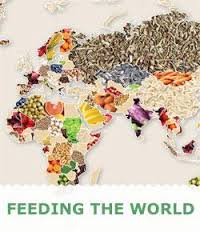The biotechnology industry “myth” that feeding billions of people necessitates genetically engineered agriculture has been debunked by a new report out Tuesday by the nonprofit health organization Environmental Working Group.
The report, Feeding the World Without GMOs (pdf), argues that investment in genetically modified organisms, or GMOs, has failed to expand global food security. It advocates more traditional methods “shown to actually increase food supplies and reduce the environmental impact of production.”
Over the past 20 years, the report notes, global crop yields have only grown by 20 percent—despite the massive investment in biotechnology.
On the other hand, it continues, in recent decades “the dominant source of yield improvements has been traditional crossbreeding, and that is likely to continue for the foreseeable future.”
As the report states, ”
seed companies’ investment in improving yields in already high-yielding areas does little to improve food security; it mainly helps line the pockets of seed and chemical companies, large-scale growers and producers of corn ethanol.”
After examining recent research on GMO crop production, the report also found:
- Genetically modified crops—primarily corn and soybeans—have not substantially contributed to global food security and are primarily used to feed animals and cars, not people.
- GMO crops in the US are not more productive than non-GMO crops in western Europe.

